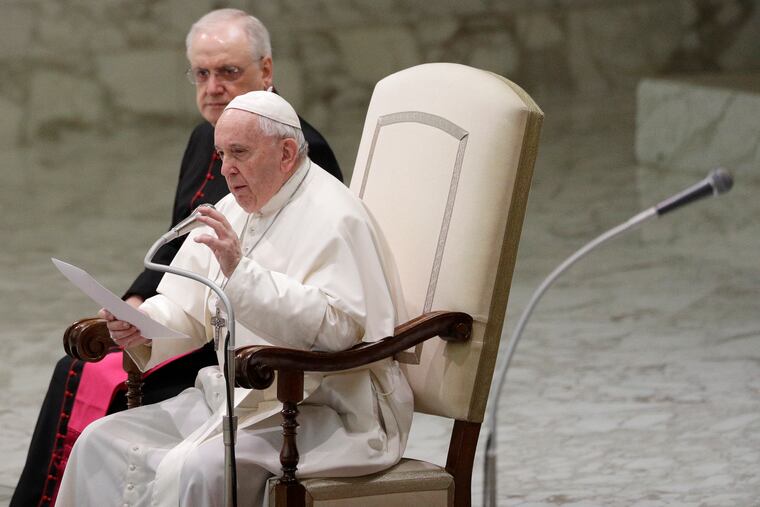Pope Francis has wrong ideas on economic reform | Opinion
Speaking to the Pontifical Academy of Social Sciences this month, the pope opened with a half-truth: “The world is rich and yet the poor increase around us.”

We aren’t even two full months into the new year and Pope Francis is back to dispensing economic advice. Speaking to the Pontifical Academy of Social Sciences earlier this month, the pope opened with a demonstrable half-truth: “The world is rich and yet the poor increase around us.”
The world is indeed rich. But poverty has been falling dramatically just about everywhere. In relative terms, fewer than 10% of humans live in extreme poverty today, versus more than 80% in the 1800s and more than 50% in the 1950s. Poverty is not only dropping like a stone in relative terms, it is also falling precipitously in absolute terms. The number of people living in extreme poverty has dropped by more than a third just in the past decade. If one statistic defines the past century, it is the unprecedented and unrelenting decline in poverty that human beings have enjoyed.
Not satisfied with simply getting the facts wrong, Pope Francis goes on to get the supposed explanation for the wrong facts wrong. According to him, poverty is rising “... because we have allowed the gap [between rich and poor] to widen to become the largest in history.” Yet, world income inequality has been falling as less developed countries catch up to developed countries.
The pope reveals his fundamental misunderstanding of economics when he cites Aristotle’s condemnation of financial speculation, wherein “money itself becomes productive, losing its true purpose which is to facilitate trade and production.” This is a misunderstanding shared by socialists from Karl Marx right up to Bernie Sanders.
Financial speculation is, without question, a benefit to society. Speculation is an activity through which risk is turned into goods and services. The reason the world has more food, safer drinking water, inexpensive cures for diseases that once killed millions, cheaper energy, cellular technology, and worldwide communication is because financial speculators took on risks that entrepreneurs and inventors couldn’t shoulder. In speculating, these financiers provided capital to markets that made its way to entrepreneurs and inventors, who brought new ideas to fruition. It is precisely because of this that humans today can feed, house, and clothe 10 times the number of people our forebears could support — and this at a standard of living so high that many of today’s poor live better than the middle class of just a century ago.
In railing against his erroneously identified reason for an erroneously identified problem, Pope Francis chastises government tax cuts for the rich. “Structures of sin today,” he says, “include repeated tax cuts for the richest people …” He names no specific governments, but there is little question that he means the United States.
Yet, here again, he gets his facts wrong. According to data from the Congressional Budget Office, an analysis of Americans’ incomes after taxes and transfers reveals that, on average, only the top 40% of income earners pay more in federal taxes than they receive back from the federal government — and this includes all federal taxes. For comparison, the average effective federal tax rate (i.e., total federal taxes paid divided by total income from all sources) for the top 1% of households is 33%, while the average middle-income household pays negative 3%.
In other words, the average middle-income household turns a profit in the U.S. tax code. U.S. taxes are this way because Americans have opted for a highly progressive income tax. Our taxes have become progressive enough that, by definition, any federal tax cut is a tax cut for the rich. On average, that’s the only group paying federal taxes at all.
So here we have Pope Francis, misdiagnosing economic problems and recommending the wrong cures. The past century proves that the poor are not becoming more numerous. Indeed, extreme poverty has been nearly eradicated over the past 100 years. The next century will doubtlessly see further gains, regardless of whether a pope can see them for what they are. But to the extent that this pope cannot see the obvious truth right before him, he cannot be a force for making things better, and might actually become a force for making things worse.
Antony Davies is an associate professor of economics at Duquesne University. James R. Harrigan is the managing director of the Center for the Philosophy of Freedom at the University of Arizona. They host the weekly podcast, Words & Numbers.